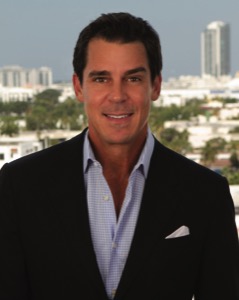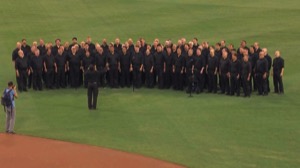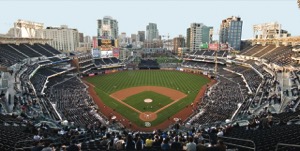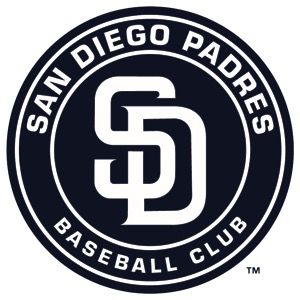
MLB’s first ambassador for inclusion opens up on the Padres/SDGMC national anthem incident
Just over two weeks ago alleged homophobia in sport hit San Diego. This well-documented incident started as a night of celebration at the annual Out at the Park, May 21 at Petco Park. The evening, as the Padres were about to take on the Dodgers, quickly turned into a debacle as the San Diego Gay Men’s Chorus (SDGMC) stood in the center of the field stunned as a woman’s voice sang the national anthem over them. As the Chorus was led off the field certain sections of the crowd shouted homophobic slurs. The story and subsequent outcomes went viral with the Padres organization being exonerated of malicious intentions by a Major League Baseball (MLB) investigation.
Now that the dust has settled on this unfortunate incident San Diego LGBT Weekly reached out to former Padre Billy Bean, who in 2014 was appointed as the MLB’s first ambassador for inclusion. Bean publicly came out as gay in 1999 and in 2003 published Going the Other Way, a groundbreaking memoir of life in and out of major league baseball.

Currently Bean is vice president, social responsibility and inclusion for MLB. “I provide awareness of baseball’s social responsibility initiatives,” said Bean. “I have a particular focus on LGBT inclusion, and to communicate resources to all players, coaches, managers, umpires and stakeholders throughout MLB to ensure an equitable, inclusive and supportive workplace for everyone.”
In his official capacity Bean’s initial reaction to the SDGMC/Padres incident downplayed the suggestion that homophobia was at the heart of this incident. This created some consternation within the LGBT community. However Bean was quick to put the record straight with respect to that. “Since my return to baseball, I have worked very closely with the Padres, and I know where their owners (and entire organization) stand on inclusion and equality,” explained Bean. “When I learned of the incident very late that evening (I was in New York City), I immediately thought of a couple of things. I knew that the Saturday May 21 home game (Pride Night) was dedicated to celebrating San Diego’s LGBT community and its long standing relationship with the Padres. I also knew that the SDGMC had performed the national anthem multiple times over the years at Petco Park.”
Bean acknowledged that mistakes can and often happen in every sports venue but knew at once that this could not have been an intentional error. “The chain of events that led to the audio malfunction with the SDGMC preparing to sing was terribly disappointing, but to presume that the Padres intended for that to happen was not a possibility for me,” said Bean. “I am saddened for any emotional harm that may have been felt that day by the Chorus members, but I am proud of how the Padres and the commissioner’s office responded to find out exactly what transpired. It was a sign of respect to the SDGMC, you, me and the entire LGBT community. I will be even prouder when SDGMC members walk back onto that field and sing again, because it will show our strength and resilience as a community, and the importance of leadership in the face of adversity not only to ourselves, but to our families, friends, allies and the great city of San Diego. MLB has spoken loudly and clearly in support of the LGBT community, and we must remember who our allies are, and unite whenever possible.”

Despite the fact that the MLB investigation cleared the Padres organization of anything other than a bad mistake, it is beyond doubt that sections of the crowd were shouting homophobic slurs. This is particularly concerning in San Diego which is considered a very LGBT-friendly city and LGBT Weekly asked Bean how the MLB, Padres and the city should deal with this kind of behavior. “It’s unfortunate, but we still live in a very divisive time, even in our most progressive cities there is discrimination,” Bean responded. “Nothing is more frustrating or angers me more than people who perpetuate antiquated stereotypes, racism or discriminate in any way. As a player, I heard disparaging remarks as I traveled and played baseball all across our country, in South America and Japan. Fans have always felt entitled to call players names. I cringe when I think of the names that Jackie Robinson was called when he joined the Brooklyn Dodgers or Larry Doby when he joined the Cleveland Indians. We will never eliminate hatred or ignorance entirely from our world, but that should never deter us from our effort to be more respectful to each other or lead by example. It is a privilege to promote baseball’s message of inclusion, because I believe in it completely.”
In many countries homophobia and racism is a far bigger problem within the very partisan spectator groups and authorities use fairly severe measures to deal with that, singling out individuals and banning them from stadia for long periods or for life. Countering that, Bean feels that within MLB ballparks courteous behavior is the rule rather than the exception and that baseball brings communities together. “The beauty of baseball is that we often come from different places but feel connected when we sit together and root for our favorite team,” said Bean. “It’s frustrating to think that a couple of people at Petco Park that Saturday chose to make disparaging remarks, but had they continued, I’m certain they would have been held accountable.”
Bean supported the action taken by the Padres in initially firing the contractor who was responsible for the mistake, calling the firing an “expression of how unacceptable that error was to the SDGMC, their fans and the city of San Diego.” Bean also praised both the SDGMC and Padres as they supported the contractor’s return calling it an act of “great humility.”

Bean asserts that MLB continues to be a leader in combatting racism and homophobia in the game citing the legacy of Jackie Robinson and his memory as being at the core of every initiative MLB creates, supports, finances and executes to youth, players, clubs and communities. “Anyone who has watched a baseball game in recent years can see the effort that MLB has made to encourage inclusion and diversity, especially in our youth programs,” said Bean. “Each club works diligently in their local communities to provide a safe and healthy environment for young athletes all across the diversity spectrum to play our great sport.”
As we came to the end of our interview, Bean, who hopes to be back in San Diego for the All-Star break in July, had a special message for the San Diego LGBT community:
“I cannot tell you how frustrated I was by this whole experience, and I initially felt terrible,” said Bean. “I feel it’s important to remember that our LGBT community was invited to celebrate who we are and the positive impact we have made on San Diego. The Padres see us as an equal and vital part of the San Diego family. I hate that this happened, but I’m thankful that we are in a time where we were able to communicate with each other and get answers to some very important questions. Our world is not perfect. I wish it was free of hatred and no child was ever bullied again. However, we all know we have a long way to go and more work to do. Personally, I keep thinking of how my own life would have changed for the better if there had been a Pride Night in San Diego when I was a member of the team. There is so much momentum and we must keep moving forward to create change.
“This was an unfortunate mistake to be sure, but I believe this experience will bring us closer to each other and allow us to embrace the things we have in common as opposed to the few things that make us different.”











